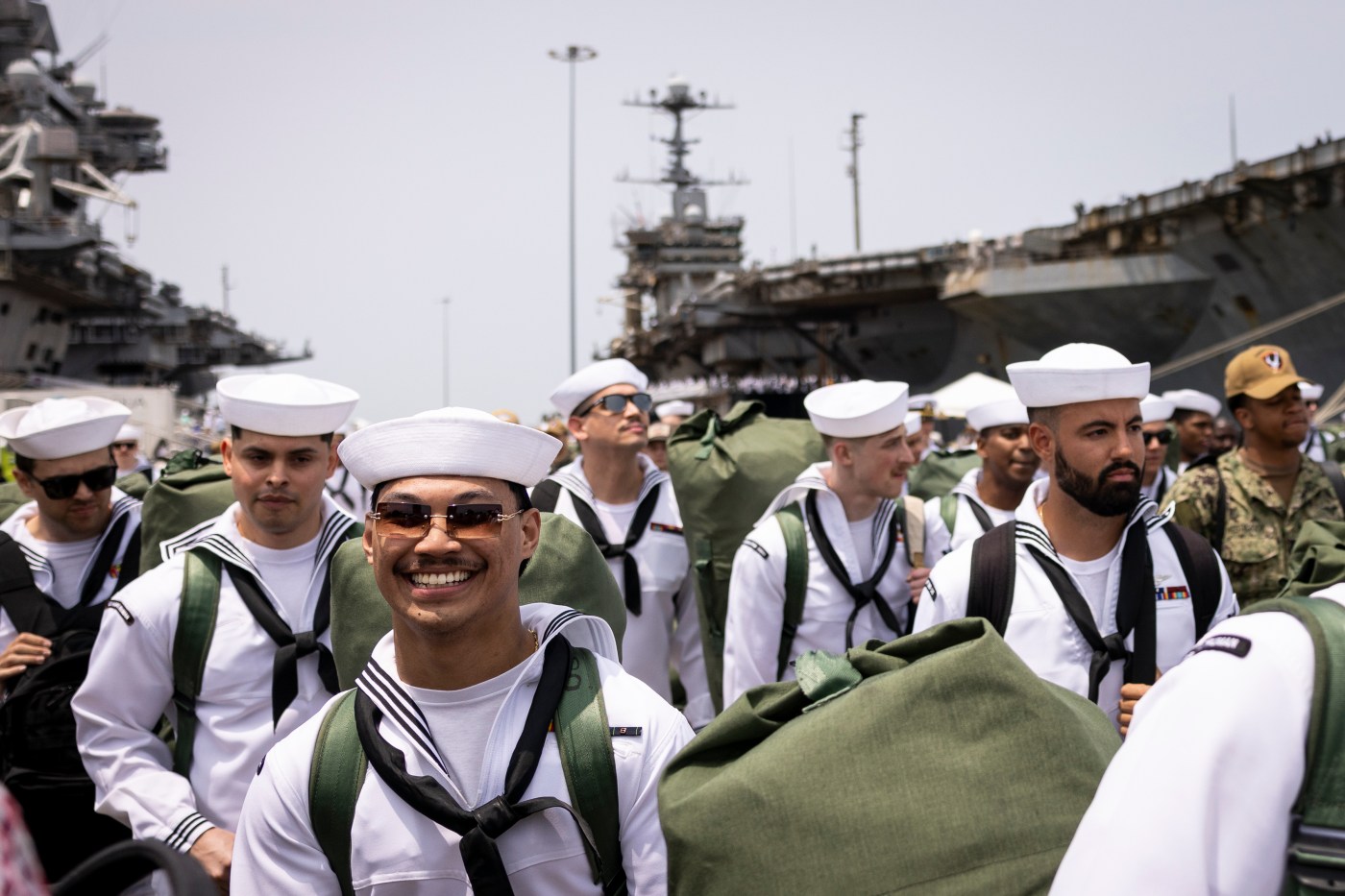Top Stories
Urgent Update: Future Veterans Transforming Military Service by 2050

UPDATE: A groundbreaking study reveals that the next generation of veterans, who will serve by 2050, will look radically different from those honored today. The Center for a New American Security has confirmed that technological advancements and new forms of warfare are driving this transformation.
As America approaches Veterans Day, it’s crucial to recognize that the veterans of the future may never see a traditional battlefield. Instead, they could be operating drones, managing cyber security, or even utilizing artificial intelligence in defense operations. This shift is already noticeable in locations like Hampton Roads, where military installations like Fort Eustis are consolidating and evolving.
The study emphasizes that today’s veterans are predominantly male and shaped by experiences in Iraq and Afghanistan. Many carry both visible and invisible scars, navigating the complexities of reintegration into civilian life. While we honor their sacrifices, it’s imperative to acknowledge that the concept of “veteran” is rapidly changing.
The future veteran may be more diverse, incorporating greater representation of women, people of color, and individuals with advanced technical skills. Their experiences will not only involve physical endurance but also a deep understanding of technology. As one expert highlights, “The veteran of 2050 is enlisting today, but our systems—healthcare, employment—are still designed for yesterday’s warriors.”
As warfare becomes increasingly digital, the emotional and psychological impacts of service will also shift. Future veterans could face trauma not from direct combat, but from distressing experiences observed on screens. This evolving nature of conflict demands that society reevaluates how we perceive and support those who serve.
At a recent Remembrance Day ceremony at Winfield House, it was evident that engagement with military service is dwindling. The audience was notably sparse and predominantly older, raising concerns about the growing indifference toward military sacrifice. If Veterans Day is to remain relevant, it must evolve—balancing remembrance with a forward-looking perspective.
Experts are urging policymakers to adapt. Are we prepared to address trauma rooted in digital warfare? Will employers recognize the skills acquired in cyber operations? As the cultural and ethical divide widens, future veterans may need to explain not only their roles but also the significance of their service in an increasingly detached society.
The call to action is clear: we must modernize our approach to supporting veterans. As military tools evolve—from boots to bots—the essence of service remains unchanged: sacrifice, duty, and a commitment to something greater.
On this Veterans Day, let us honor not only the past but also the future. Our gratitude must extend to all generations of veterans, ensuring that as warfare shifts, our respect and support will remain steadfast. David W. Walker, President and CEO of the Coalition to Salute America’s Heroes, emphasizes that “Change is not the enemy”—it’s a necessary evolution we must embrace.
Stay tuned for more updates as the conversation around the future of military service and its veterans continues to develop.
-

 World3 weeks ago
World3 weeks agoGlobal Air Forces Ranked by Annual Defense Budgets in 2025
-

 World3 weeks ago
World3 weeks agoMass Production of F-35 Fighter Jet Drives Down Costs
-

 Science3 weeks ago
Science3 weeks agoTime Crystals Revolutionize Quantum Computing Potential
-

 World3 weeks ago
World3 weeks agoElectrification Challenges Demand Advanced Multiphysics Modeling
-

 Top Stories3 weeks ago
Top Stories3 weeks agoNew ‘Star Trek: Voyager’ Game Demo Released, Players Test Limits
-

 Top Stories3 weeks ago
Top Stories3 weeks agoDirecTV to Launch AI-Driven Ads with User Likenesses in 2026
-

 Lifestyle3 weeks ago
Lifestyle3 weeks agoDiscover Reese Witherspoon’s Chic Dining Room Style for Under $25
-

 Entertainment3 weeks ago
Entertainment3 weeks agoFreeport Art Gallery Transforms Waste into Creative Masterpieces
-

 Business3 weeks ago
Business3 weeks agoGold Investment Surge: Top Mutual Funds and ETF Alternatives
-

 Health3 weeks ago
Health3 weeks agoGavin Newsom Critiques Trump’s Health and National Guard Plans
-

 Politics1 week ago
Politics1 week agoLanguage Evolution: New Words Spark Confusion in Communication
-

 Lifestyle3 weeks ago
Lifestyle3 weeks agoLia Thomas Honored with ‘Voice of Inspiration’ Award at Dodgers Event









